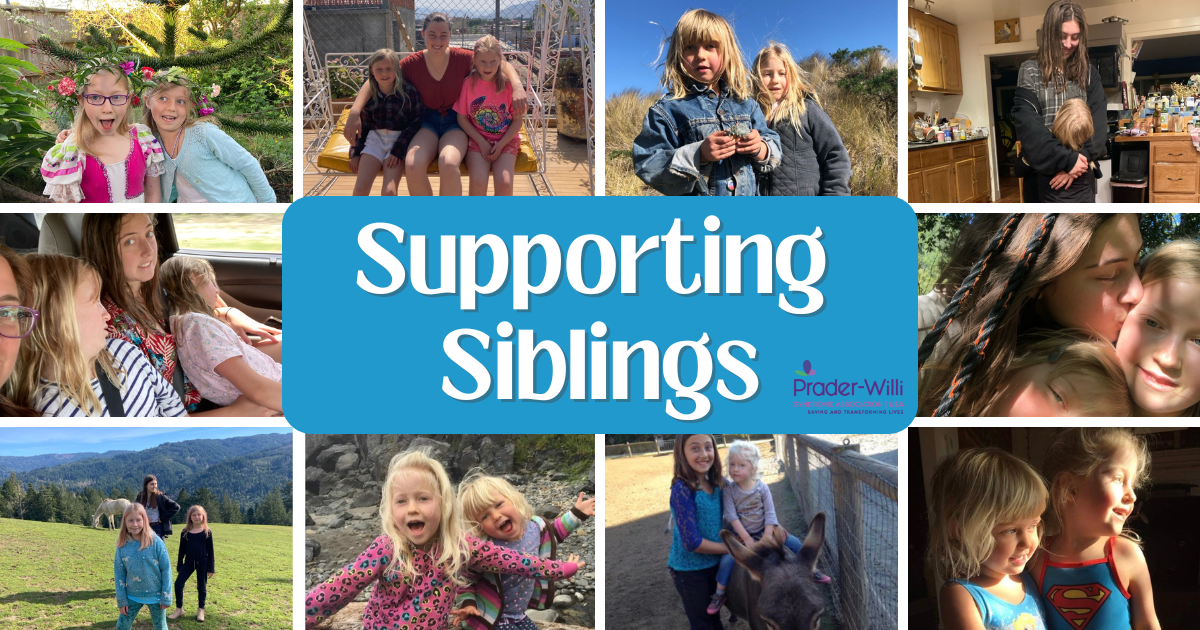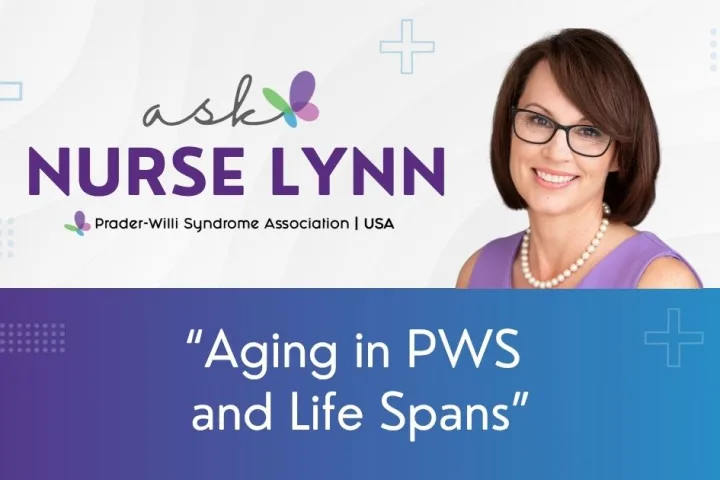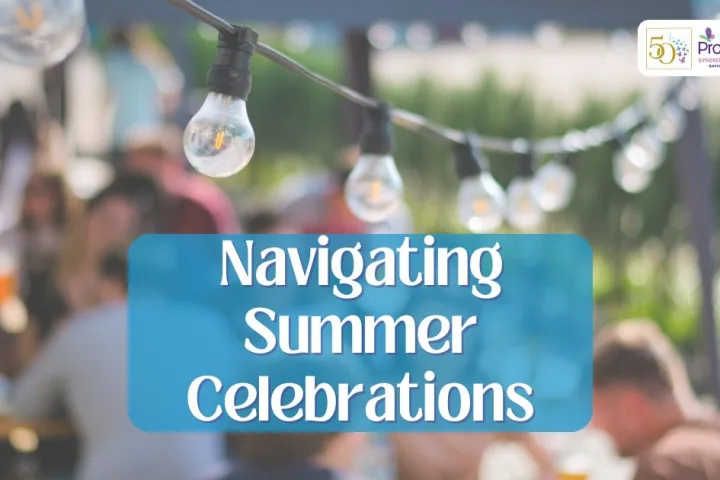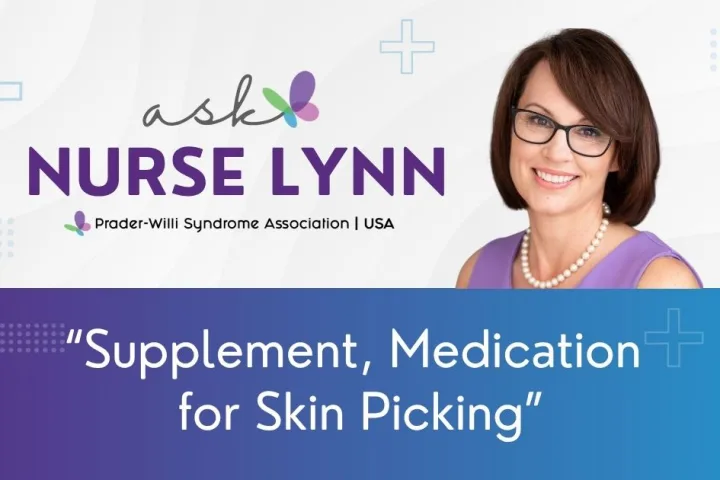Contributed by Anne Fricke
The quotes in this blog come from the transcript of an NPR Talk of the Nation broadcast, “Siblings with Special Needs Change Childhood”, that aired on Sept. 25, 2012. Don Meyer, the person quoted, is the founder of the Sibling Support Project.
As the parent of a child with PWS, I know the overwhelm that can come from the variety of challenges thrown our way. Our own needs often get lost in the foray of our children. Setting aside our own needs is, of course, a typical trait of parenting, but amplified by the challenges of PWS. Often, our loved ones with PWS are not our only children, and we must find previously unknown reserves to balance the unique demands of PWS and the typical needs of our other children. At times, we fall short. Thankfully, there are resources to help support the siblings of children with PWS.
My Sibling Story
I have three daughters—Freya with PWS lands in the middle. My oldest was 7 when Freya (3 ½ months at the time) was diagnosed. She was the first person to walk in the room when I received the phone call (yes, our diagnosis came via a phone call on a Friday night). My fears, worries, concerns, and grief came pouring out in tears, landing heavily on my 7-year-old shoulders. In that instant, she was thrown into the realm of special needs siblinghood and burst onto the scene as if shot out of a cannon. (Side note: I have since brought up that moment to her, intending to heal what grief she carried with her. To my surprise, and perhaps some doubt, she claims not to remember it.)
I don’t worry about her as much regarding the challenges of being a sibling. I occasionally mention specific sibling support resources and check in from time to time to see if there are things she wants to discuss. So far, she is resilient and unaffected by the significant challenges. It’s my youngest that I worry about.
She was born 16 ½ months after Freya. She went to every doctor’s appt. and therapy session, sat through home lessons with the itinerant teacher, and learned to eat some snacks quickly and quietly (a practice we have since stopped for its effect on disordered eating). She has seen me meet Freya with the patience of an angel and break down into tears with frustration. She is the fixer. The patient child who does well at everything and is always “fine.” I know these are not always healthy responses.
Not an Uncommon Response
MEYER: Yes, some brothers and sisters find themselves in the good kid role, the one who’s going to make everything right, the one who’s going to balance the scales. And for some sibs that I’ve talked to, they say, well, that’s how I got attention in my family, is that I did well in school.
And other sibs say, you know, my parents had enough heartache…They didn’t need my worries as well. And often you see sibs, they go on to be very conscientious people and good students, and there’s certainly nothing wrong with that, but it’s – I guess it’s problematic when they’re neurotic achievers, or they never bring home any bad news. You only get good news from them.
And, you know, if that happened to one of my kids, the message I would want to give them is that, you know, yes, we have high expectations for you like we have high expectations for your brother who has special needs, and we have high expectations for ourselves. But you know what? None of us are perfect, and being in a family is to be there for each other in good times and not-so-good times.
Planning for the Future
As parents, it can be difficult to think ahead to the future. PWS can bring so many shifts, surprises, and developmental phases and transitions that sometimes it’s hard to imagine what the next year may look like. Now that we have more information on how to manage PWS, our loved ones are living longer, in many cases, outliving their parents. While the conversation of what happens then may be scary and triggering, it is a critical conversation to have. Not only will it offer the parents peace of mind, but most importantly, those conversations will help prepare the sibling and keep your loved one safe.
MEYER: I’m forever meeting adults who have no idea what their parents’ wishes are. And they’ve tried to bring it up with their moms and dads, and their parents just don’t want to go there. It’s understandable why they wouldn’t want to talk about it, but the reality is is that these brothers and sisters are going to be involved, and they would be wise to start talking about it sooner rather than later.
Yeah, brothers and sisters are going to have the longest-lasting relationship with that family member who has special needs. They will be in the lives of that person longer than any service provider will but even longer than parents….after the best special education program is a distant memory, and the parents are no longer around to look after their fears, it’s going to be the brothers and sisters who will assure that the family member with a disability leads a dignified life, living and working in the community.
So there’s a whole host of adult sibling issues. And I think parents are sometimes surprised to learn at what an early age brothers and sisters are thinking about life beyond mom and dad. And I often hear from kids who are, you know, 10, 11, 12 years old thinking about, you know, how they, in the days to come, they are going to assume a significant role in the lives of their brothers and sisters.
It is essential that we have those conversations with siblings and that we provide them with support when we can. Unless you grew up as a sibling to someone with a disability as well, you may be unable to fully recognize what your sibling is experiencing. While there are many advantages and beautiful experiences to being the sibling of a child with PWS, there are many challenges as well.
Effects of Siblinghood
Freya’s little sister just turned 11. The teacher praises her for being the kid in class who welcomes everyone and gives attention to those who hang on the periphery. Though I have told her consistently that she doesn’t need to, she sometimes steps in at home to appease Freya. She puts in extra effort on chores and helps with tasks when she knows I am struggling with Freya. She is the first to offer to cook if I am stressed and often comes to Freya’s aid when she needs help with homework or some mundane task. I am beyond grateful for her, sincerely appreciate and honor the qualities she shares with the world. Yet I worry that they are a mask for a growing resentment or a shield to unprocessed grief. Though the phrase doesn’t entirely cover my feelings, I look forward to taking her to the sibling camp at the United in Hope conference in 2025. I may not always have my wits in those intense PWS moments to be the support that she needs, but I know I can provide her access to support and a community of people who can relate.
How To Help
One way to help siblings of people with intellectual disabilities, connect them with other people in the situation, they can pick up important information and, well, express some of those feelings we’re talking about. – NEAL CONAN, host
Resources
If you’d like to listen to this NPR broadcast or read the full transcript, you can find it HERE.
PWSA | USA has resources for siblings as well:
Facebook Group: PWSA | USA Parents/Siblings of Adult Children 30+
PWSA | USA hosts online support groups for siblings. Join our main Facebook page to see when those are promoted.
Share this!





 Jennifer Bolander has been serving as a Special Education Specialist for PWSA (USA) since October of 2015. She is a graduate of John Carroll University and lives in Ohio with her husband Brad and daughters Kate (17), and Sophia (13) who was born with PWS.
Jennifer Bolander has been serving as a Special Education Specialist for PWSA (USA) since October of 2015. She is a graduate of John Carroll University and lives in Ohio with her husband Brad and daughters Kate (17), and Sophia (13) who was born with PWS. Perry A. Zirkel has written more than 1,500 publications on various aspects of school law, with an emphasis on legal issues in special education. He writes a regular column for NAESP’s Principal magazine and NASP’s Communiqué newsletter, and he did so previously for Phi Delta Kappan and Teaching Exceptional Children.
Perry A. Zirkel has written more than 1,500 publications on various aspects of school law, with an emphasis on legal issues in special education. He writes a regular column for NAESP’s Principal magazine and NASP’s Communiqué newsletter, and he did so previously for Phi Delta Kappan and Teaching Exceptional Children. Evan has worked with the Prader-Willi Syndrome Association (USA) since 2007 primarily as a Crisis Intervention and Family Support Counselor. Evans works with parents and schools to foster strong collaborative relationships and appropriate educational environments for students with PWS.
Evan has worked with the Prader-Willi Syndrome Association (USA) since 2007 primarily as a Crisis Intervention and Family Support Counselor. Evans works with parents and schools to foster strong collaborative relationships and appropriate educational environments for students with PWS. Dr. Amy McTighe is the PWS Program Manager and Inpatient Teacher at the Center for Prader-Willi Syndrome at the Children’s Institute of Pittsburgh. She graduated from Duquesne University receiving her Bachelor’s and Master’s degree in Education with a focus on elementary education, special education, and language arts.
Dr. Amy McTighe is the PWS Program Manager and Inpatient Teacher at the Center for Prader-Willi Syndrome at the Children’s Institute of Pittsburgh. She graduated from Duquesne University receiving her Bachelor’s and Master’s degree in Education with a focus on elementary education, special education, and language arts. Staci Zimmerman works for Prader-Willi Syndrome Association of Colorado as an Individualized Education Program (IEP) consultant. Staci collaborates with the PWS multi-disciplinary clinic at the Children’s Hospital in Denver supporting families and school districts around the United States with their child’s Individual Educational Plan.
Staci Zimmerman works for Prader-Willi Syndrome Association of Colorado as an Individualized Education Program (IEP) consultant. Staci collaborates with the PWS multi-disciplinary clinic at the Children’s Hospital in Denver supporting families and school districts around the United States with their child’s Individual Educational Plan. Founded in 2001, SDLC is a non-profit legal services organization dedicated to protecting and advancing the legal rights of people with disabilities throughout the South. It partners with the Southern Poverty Law Center, Protection and Advocacy (P&A) programs, Legal Services Corporations (LSC) and disability organizations on major, systemic disability rights issues involving the Individuals with Disabilities Education Act (IDEA), Americans with Disabilities Act (ADA), and the federal Medicaid Act. Recently in November 2014, Jim retired.
Founded in 2001, SDLC is a non-profit legal services organization dedicated to protecting and advancing the legal rights of people with disabilities throughout the South. It partners with the Southern Poverty Law Center, Protection and Advocacy (P&A) programs, Legal Services Corporations (LSC) and disability organizations on major, systemic disability rights issues involving the Individuals with Disabilities Education Act (IDEA), Americans with Disabilities Act (ADA), and the federal Medicaid Act. Recently in November 2014, Jim retired.